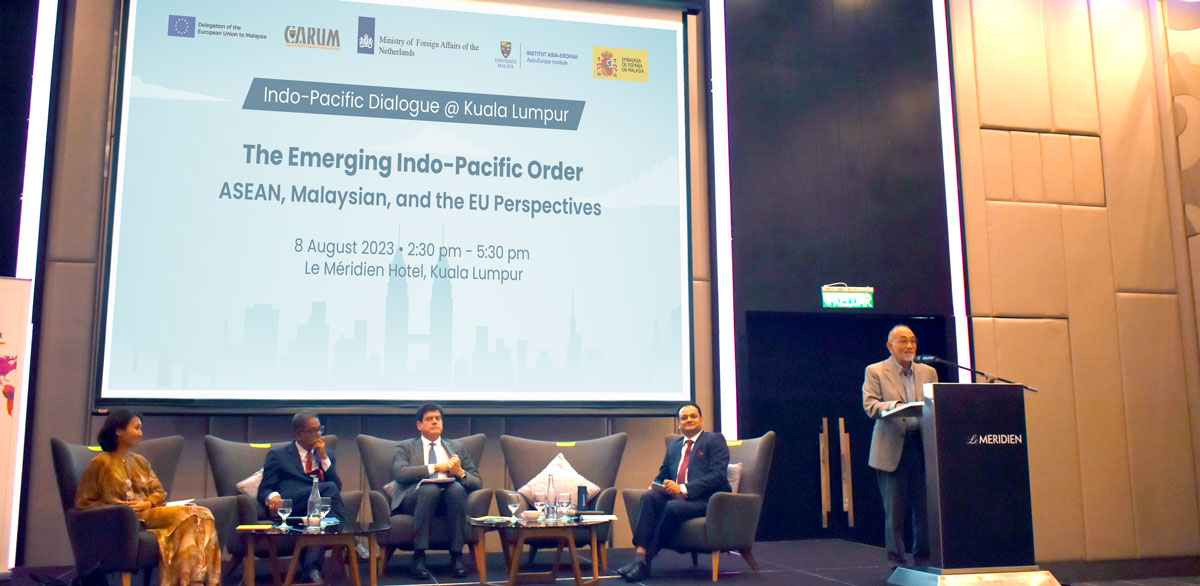
08/08/2023 10:09 PM
KUALA LUMPUR, Aug 8 (Bernama) -- ASEAN can be the convening power to assist in managing the growing challenges in the evolving dynamics of the Indo-Pacific, geopolitical scientist Dr Johan Saravanamuttu said.
He stressed that, however, the bloc must maintain its non-aligned and instrumentalities while dealing with a potential post hegemonic world order in the current hybridised environment of global politics.
“ASEAN can take stronger position. Now we see that in the Indo Pacific region, issues are popping up, ASEAN can be a convening platform to bring in all the protagonists for greater dialogues to reduce the tensions,” he told Bernama after the Indo-Pacific Dialogue: The Emerging Indo-Pacific Order - ASEAN, Malaysia and the EU Perspectives, held here, Tuesday.
The dialogue also coincided with the ASEAN Day, as the grouping celebrated its 56th anniversary.
He noted that ASEAN as a middle power is already deploying its statecraft such in the ASEAN Regional Forum (ARF) and in the complex overlapping territorial claims in the South China Sea.
However, he was optimistic that ASEAN can be more proactive and do more in this direction.
“ASEAN is engaging positive neutralism. It is not just sitting down and doing nothing. It always pushing something. Its already there, but it need to taking extra steps,” he said.
Johan who is adjunct senior fellow at the S. Rajaratnam School of International Studies (RSIS), Nanyang Technological University, Singapore opined that ASEAN should also be more vocal on many of major geopolitical and security issues affecting not only the region but also the world.
Concurring with Johan, Director of Centre for ASEAN Regionalism Universiti Malaya (CARUM) Dr Rahul Mishra said ASEAN can reposition itself as a prominent and vocal actor in order to continue to stay relevant in view of the many emerging non security threats around the globe.
“For example, it can use health diplomacy as a channel, by creating a robust mechanism and engaging international actors to prepare for any pandemic in the future,” he said.
ASEAN, formed on Aug 8, 1967 is today consists 10 members namely Brunei, Cambodia, Indonesia, Laos, Malaysia, Myanmar, the Philippines, Singapore, Thailand and Vietnam.
-- BERNAMA
Source: https://www.bernama.com/en/world/news.php?id=2214453
Last Update: 10/08/2023